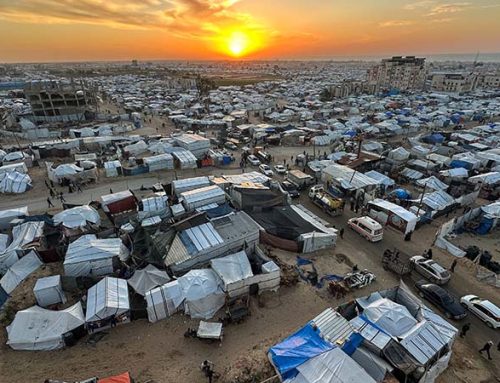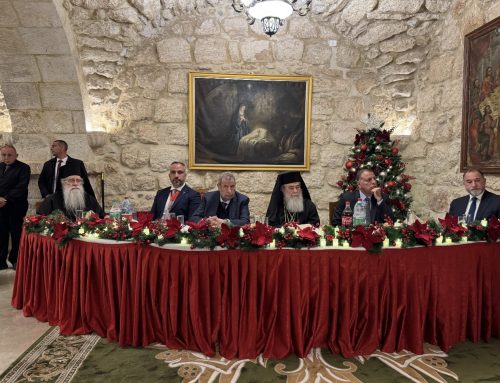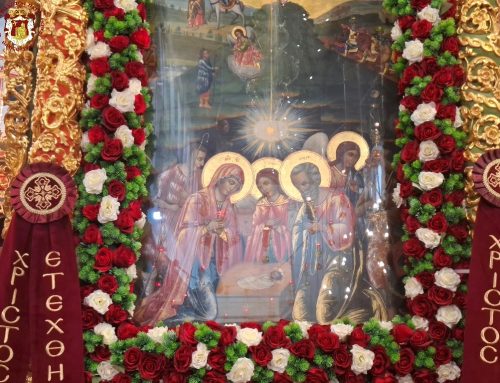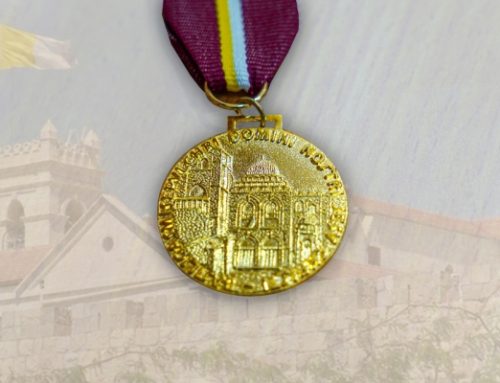
Firstly, the Kirk has a long tradition of engaging in one way or another with Palestine, and then Israel and Palestine. In modern history, engagement in the 19th and first half of the 20th century was primarily in the context of missions, in the mistaken belief that, first, it could convert Jews to Presbyterianism and, second, that this was a desirable thing to do (it should be noted they were largely unsuccessful).
Following World War Two and the genocidal destruction of European Jews, and shortly thereafter the creation of the State of Israel (1948), this position changed, and the Church of Scotland became broadly pro-Zionist and supportive of Israel, with no significant attempt to pursue evangelism amongst Jews. Humanitarian aid aside, little attention was paid to the situation of Palestinians until the 1980s, when growing awareness of the political complexities of the illegal Israeli occupation of Palestinian land began to influence key debates.
By the 1990s, in substantial measure through listening to their ecumenical partners in the region, the Kirk had taken clear positions from an international law and justice perspective, abandoning the largely unquestioning Zionism of previous decades and supporting those seeking a just and peaceful resolution to the conflict through the two-state solution. This change coincides with the 1987 intifada (Palestinian uprising against Israeli occupation), the Madrid (1991) and Oslo (1993) conferences and the so-called ‘peace process’ that then developed.
Secondly, this year’s report places itself in a historical context of other reports from 2003, 2007 (both from the Kirk), and the 2009 Kairos Palestine statement), but it is also worth recalling the 2010 General Assembly debate that the Church and Society Council engaged in, regarding a proposal to boycott Israeli settlement goods.
The Rev Ian Galloway, then Convener of the Church and Society Council, famously withdrew the proposed boycott call as a result of the threat to the Church’s work in the region from Israeli laws designed to make boycott calls illegal: ‘The General Assembly “may take this legislation to be intimidatory”, said Mr Galloway, adding sorrowfully: “We are intimidated.”’
Of course, the Israeli government was not specifically targeting the Church of Scotland, but all civil society attempts to engage in nonviolent boycotts in protest against Israeli government policy, and the Kirk clearly felt intimidated.
The report that was discussed today is the second version of this report. The first version (available here) (*.PDF document) caused considerable disquiet in certain Zionist circles, with acerbic comments in Israeli newspapers, and a number of negative reports in, for example, the London-based Jewish Chronicle.
There is certainly a case to be made that the Council approached this whole subject with some considerable naivety, and drafted the report in such a way that it could easily be misunderstood. Two examples, one on content, one on the wider significance of the report, can be given to illustrate this:
• One of the key areas that the Church failed to adequately address, even in the second version of the report, was the question of supersessionism: the idea that Jesus and the New Testament represent the ‘superseding’ of the Old Testament. This poisonous trope has its origins in the centuries of European Christians’ anti-Jewish sentiment. In the new version of the report the Council explicitly state that their approach ‘does not judge the faith of others nor suggest that one perspective supersedes another… • I understand that one of the key people involved was bemused that people beyond the Church would take such an interest in what was as simply an internal discussion document about the Church’s theology – it did not seem to have occurred to this person that putting a PDF about the Middle East online might be of interest to people beyond the Kirk. While the report is about a theology of ‘promised land’ in relation to the Israel/Palestine question, the Jewish Chronicle was not alone in charactering this as a report ‘about Israel’ without any of the nuances that the Kirk sought to emphasise. The Israeli Ambassador commented negatively on the report, and a meeting with the Church of Scotland was held on 9 May 2013 with representatives of the Scottish Council of Jewish Communities, the Board of Deputies of British Jews, the Movement for Reform Judaism, and Rabbis for Human Rights, at which it was agreed that the report would be withdrawn and revised (Church statement is available here). The revised report (*.PDF document) is what was discussed at the Assembly. The theologian Karl Barth argued that a Christian should read the Bible and the newspaper together. In other words, the Bible always needs to be read in relation to wider society. This is what the Rev Foster-Fulton’s Church and Society Council sought to do in this case: articulate an understanding of ‘promised land’ in relation to an interpretation of the Bible and the context of the situation in the Middle East. It is asking a question: what emerges from interpreting the Bible and the situation in Israel/Palestine in relation to one another? The Council report recorded different ways of interpreting Biblical texts, from literalism to more contextual approaches, while noting that they are ‘especially concerned at the recent actions of the Government of Israel’, explicitly commenting on settlements, the Wall, the blockade of Gaza, and the afore-mentioned anti-boycott law. In the debate, Foster-Fulton, repeatedly highlighting what she described as ‘the huge imbalance of power’ in relations between Israel and Palestine, was very clear that the report is a critique of the Israeli occupation and not a comment on relations between the Kirk and Jewish people in Scotland. This was given additional emphasis through passionate interventions from two Palestinian delegates, the Rev Na’el abu Rahman and Dr Bernard Sabella, who both affirmed the report of the Council. Sabella noted that one could well regard the land as holy, but relationships between people were far more holy, and these were being harmed by the occupation. Indeed, a number of commissioners spoke of personal visits to Israel/Palestine, and related harrowing accounts of the effects of the occupation on Palestinians. These personal narratives appeared to play a strong role in commissioners’ voting patterns: most such accounts tended to be followed by supportive applause, and Foster-Fulton reminded commissioners that the report was about precisely how to understand the Bible’s ‘promised land’ texts in such contexts. Has anything changed in terms of Church policy after this debate? The Church’s relationships to those supporting a Zionist perspective will almost certainly have become more complex given the pointed rejection of key tenets of Zionist ideology and the potential for supersessionist readings of the report, but in broad terms, the report does not change the Kirk’s overall position on the conflict. For a number of years now, as I outlined above, the Church of Scotland has backed a just peace between Israelis and Palestinians, whether Jewish, Christian or Muslim, while critiquing the fundamental injustice of Israel’s illegal occupation. The report, which is being sent to local presbyteries and congregations to study, has the potential to raise considerable awareness of these issues, and for that, it is to be commended. The Rev Foster-Fulton’s command of her subject on the podium ensured that the debate was mature and considered, and the report deserves to be widely read, including well beyond the Church of Scotland. By: Michael Marten





